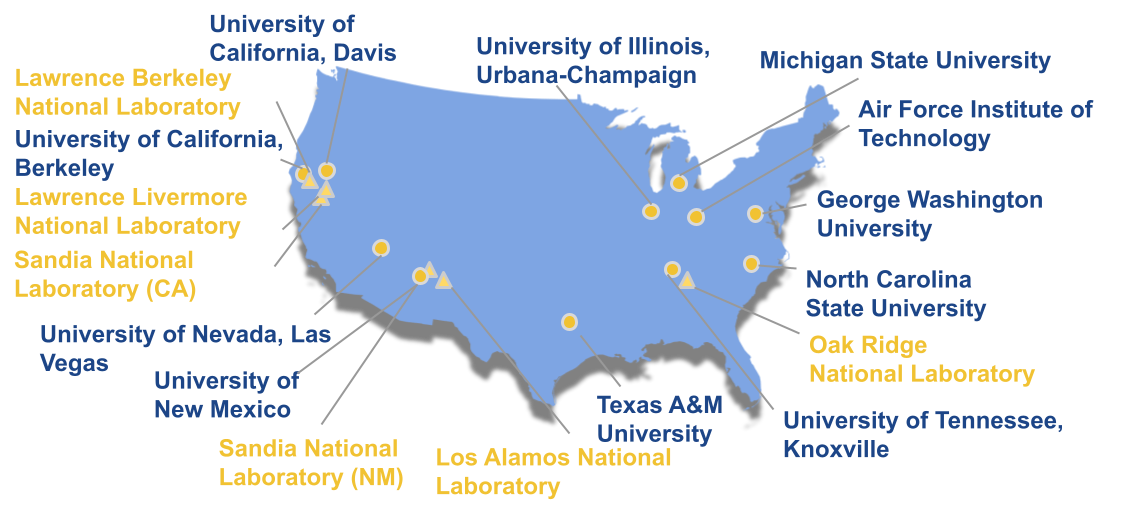Introduction and History
The NSSC is a UC Berkeley-led consortium sponsored by the National Nuclear Security Administration. With more than 150 professors, researchers and students at eleven major universities and five national laboratories, the NSSC contributes to research in nuclear security and proliferation detection while training the next generation of nuclear experts.
In 2011, the National Nuclear Security Administration awarded the Nuclear Science and Security Consortium (NSSC) $25 million to establish a five-year program to train the next generation of nuclear security experts. An additional $1.5M was awarded in 2011 for scholarships, research projects, and summer fellowships in collaboration with minority-serving institutions. Partner universities in the first phase of the consortium included UC Berkeley, Michigan State University, UC Irvine, UC Davis, Washington University in St. Louis, the Institute on Global Conflict and Cooperation at UC San Diego, and the University of Nevada, Las Vegas. Partner national laboratories included Lawrence Berkeley, Lawrence Livermore, Los Alamos, and Sandia National Laboratories.
In 2016, the NSSC successfully competed for an additional five years of support. Partner universities in the second phase of the consortium currently include UC Berkeley, Michigan State University, UC Davis, George Washington University, Texas A&M University, the University of Tennessee, Knoxville, and the University of Nevada, Las Vegas. Partner national laboratories include Lawrence Berkeley, Lawrence Livermore, Los Alamos, Oak Ridge, and Sandia National Laboratories.
The Department of Energy’s National Nuclear Security Administration has tapped UC Berkeley for the third time to lead the Nuclear Science and Security Consortium (2021-2026), which now brings together nuclear scientists and engineers from eleven universities and five national labs: UC Berkeley (lead); Air Force Institute of Technology; George Washington University; Michigan State University; North Carolina State University; Texas A&M University; UC Davis; University of Illinois Urbana-Champaign; University of Nevada, Las Vegas; University of New Mexico; and University of Tennessee, Knoxville in cooperation with the same laboratory partners: LANL, LBNL, LLNL, SNL, ORNL. The R&D agenda in the new consortium is organized by two main themes: fundamental nuclear sciences, which includes nuclear physics and nuclear data, nuclear chemistry and radiochemistry, and nuclear materials science; and applied nuclear science and engineering, which includes radiation detection, nuclear chemical engineering and nuclear engineering. Linking these are two crosscutting activities: computing and optimization for nuclear applications, and education in nuclear science, technology, and policy.
Mission
The NSSC mission is to train the next generation of nuclear scientists and engineers while engaging in research and development spanning basic aspects of new technology and methods to programmatic work directly supporting the nuclear security and nonproliferation mission.
Partner Institutions

